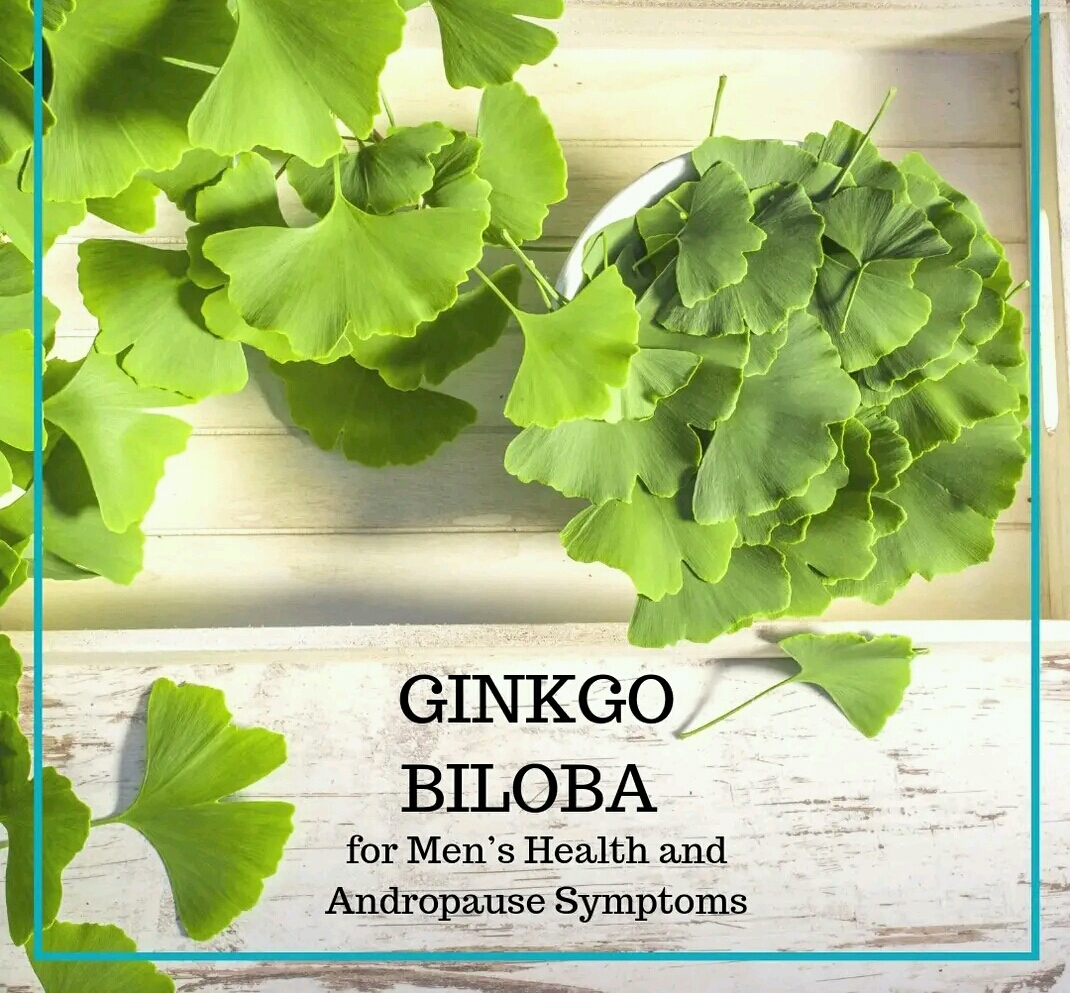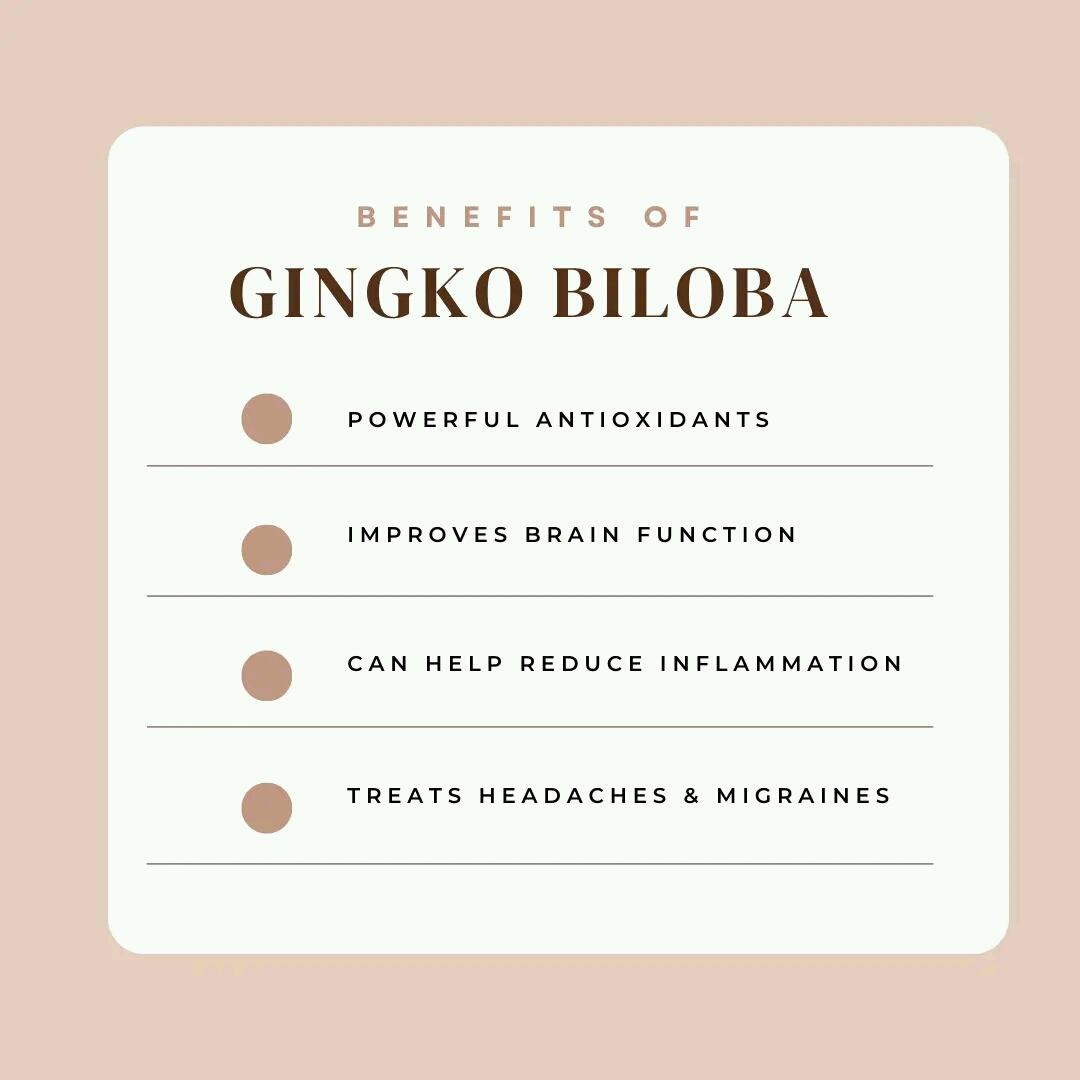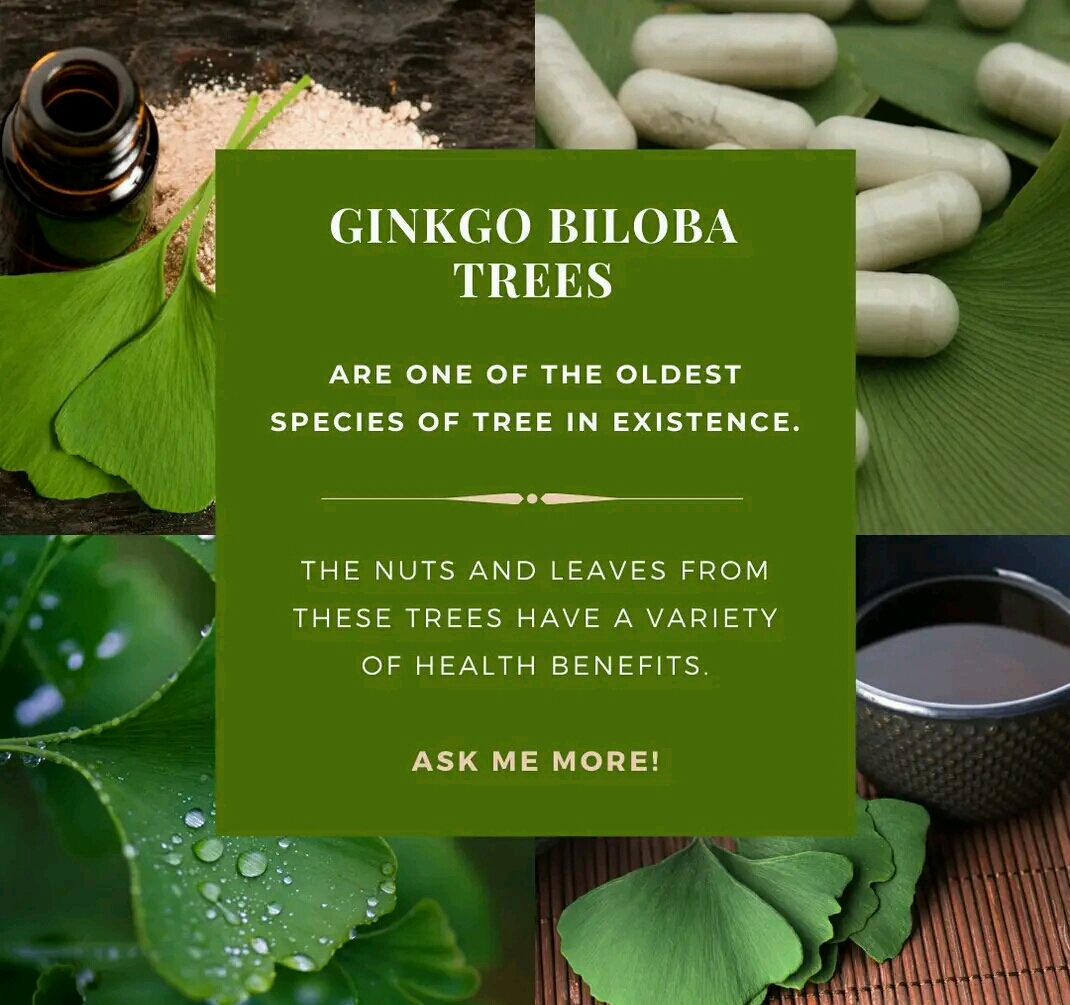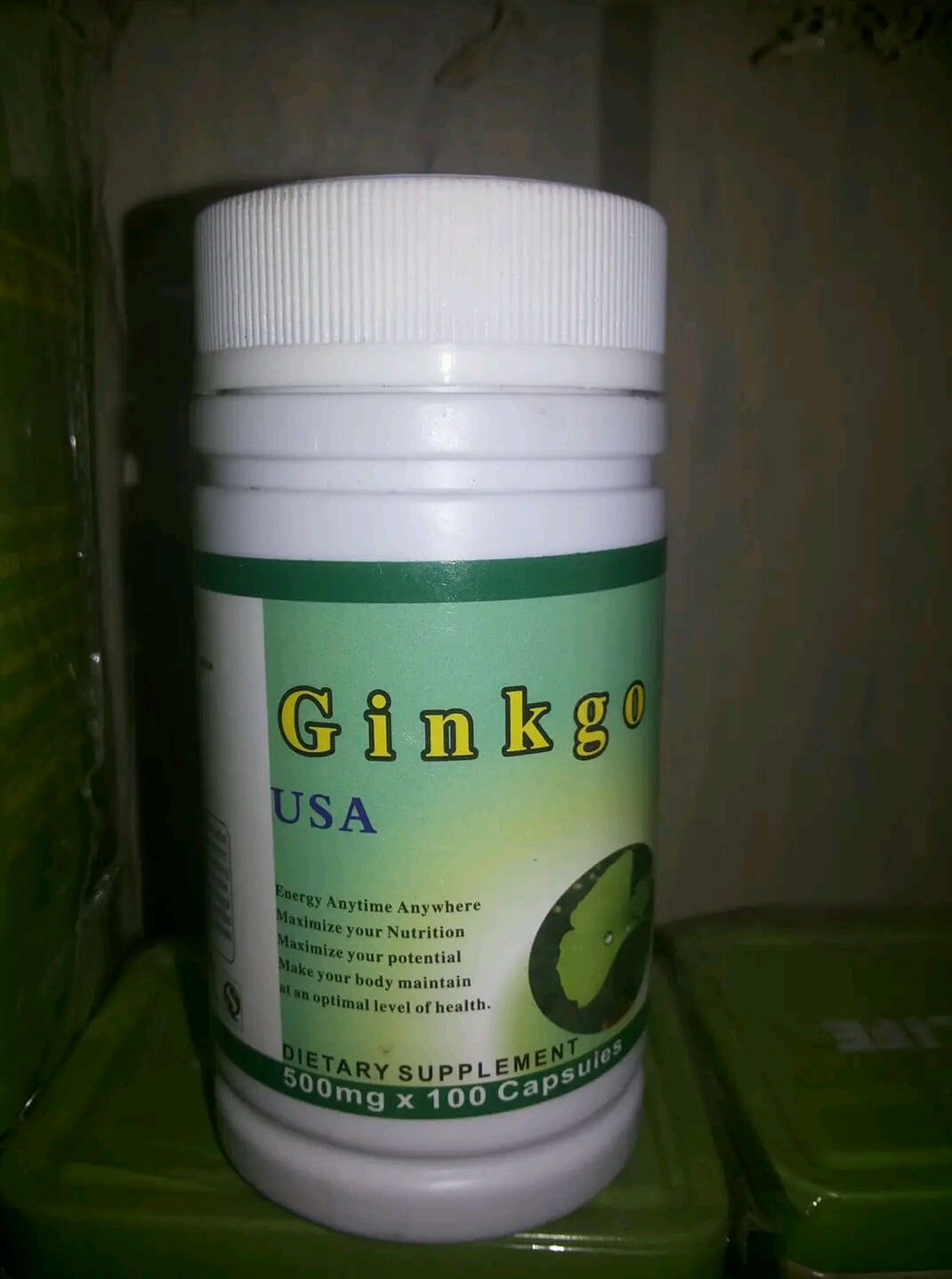Health Benefits of Ginkgo biloba

Health Benefits of Ginkgo biloba
Who is still doubting God and Nature. The world is a mystery even you reading my post is a mystery.
Ginkgo biloba, also known as the Maidenhair Tree, is a species of tree native to China that has been used in traditional medicine for thousands of years.
Ginkgo biloba is a type of tree that is native to China and is considered to be one of the oldest living species of trees in the world. The tree is widely cultivated for its attractive, fan-shaped leaves and is often grown as an ornamental tree.

The leaves of the Ginkgo biloba tree contain compounds that have been used for centuries in traditional medicine to treat a variety of health problems, including memory loss, concentration difficulties, and circulatory disorders.
More recently, Ginkgo biloba has been the subject of scientific research to determine its potential health benefits. While some studies have suggested that Ginkgo biloba may have positive effects on cognitive function, memory, and blood flow, other research has failed to find significant benefits. The overall evidence for the effectiveness of Ginkgo biloba as a medicinal herb is still inconclusive, and more research is needed to fully understand its potential health benefits and risks.

It’s important to note that Ginkgo biloba can have side effects and interact with certain medications, so it’s important to speak with a doctor before taking Ginkgo biloba supplements or any other form of the herb.
Ginkgo is cultivated in China, France and the United States (South Carolina) but native of Asia.
It produces yellow-green, fan-shaped leaves with radiating veins, as well as pseudo -fruits round, about 3 cm in diameter Leaves and pseudo-fruits are harvested in autumn.
Even if nothing suggests, since its foliage is not persistent and it does not bear any cones, the ginkgo biloba is a coniferous tree, reaching 40 m high, it adopts a very spread form and is covered with small, delicately ribbed leaves, turning from light green to golden yellow in autumn.
Health Benefits of Ginkgo biloba
Here are some of the potential health benefits associated with Ginkgo biloba:
1. Promotes Good Blood Circulation
Anticoagulant, anti-aggregating (prevents the formation of thromboses or clots), vasodilator (facilitates the dilation of the blood vessels) Reinforces the brain functions, mainly in case senile dementia: stimulates memory, helps concentration and reasoning.
Ginkgo biloba is thought to improve circulation by dilating blood vessels and reducing the stickiness of blood platelets, which can reduce the risk of blood clots.
Good circulation also means healthier skin and a more uniform skin texture. Improving circulation will allow for a more effective transfer of stored fat from cellulite to muscle tissue, enabling it to be burned and used as energy.
2. Cognitive function
Some studies suggest that Ginkgo biloba may improve cognitive function, especially in older adults or those with mild cognitive impairment.
3. Anxiety and depression
Some studies suggest that Ginkgo biloba may help to reduce symptoms of anxiety and depression.
4. Tinnitus
Ginkgo biloba may help to reduce symptoms of tinnitus, a ringing in the ears.
5. Asthma and bronchitis
Ginkgo biloba may help to reduce the severity of symptoms associated with asthma and bronchitis.
6. Eye health
Ginkgo biloba may help to improve vision, reduce eye strain, and protect the eyes from age-related damage.
In one of my study glaucoma patients that took 120mg of ginkgo biloba daily for eight weeks realized that there vision improved.

7. $exual function
Ginkgo biloba may help to improve $exual function in some individuals, particularly those with sexual dysfunction due to antidepressant use or other factors.
8. PMS
Ginkgo biloba may help to relieve symptoms of premenstrual syndrome (PMS), such as mood swings, cramps, and headaches.
9. Raynaud’s disease
Ginkgo biloba may help to reduce symptoms of Raynaud’s disease, a condition that causes the fingers and toes to become numb and cold in response to cold temperatures or stress.
10. Migraines
Ginkgo biloba may help to reduce the frequency and severity of migraines.
11. Altitude sickness
Ginkgo biloba may help to reduce symptoms of altitude sickness, such as headache, nausea, and dizziness.
12. Macular degeneration
Ginkgo biloba may help to slow the progression of age-related macular degeneration, a leading cause of blindness.
13. Diabetes
Ginkgo biloba may help to improve insulin sensitivity and reduce the risk of diabetic complications.
14. Inflammation
Ginkgo biloba has anti-inflammatory effects and may help to reduce inflammation in the body.
15. Multiple sclerosis
Ginkgo biloba may help to reduce symptoms of multiple sclerosis, a chronic autoimmune disease that affects the central nervous system.

OTHERS
In Asia, ginkgo leaves are used in decoctions to relieve respiratory diseases such as asthma or bronchitis (expectorant and sedative effects) ), but also as a dewormer. The seeds are used to prepare remedies for urinary disorders.
Helps healing ulcers, bruises, burns (poultices of crushed leaves on the injured areas) Many anti-aging cosmetics (creams) use ginkgo as a base for its properties protective and restorative on the skin (antioxidant, anti-inflammatory and stimulant effects), especially in case of rosacea.
In Asia, the leaves also serve as poultices to cure frostbite.
OTHER THERAPEUTIC INDICATIONS DEMONSTRATED
It lowers the blood cholesterol, improves memory, counteracts the tissue damage due to anoxia and iron-deficiency, as well as delays aging.
Ginkgo biloba is widely touted as a “brain herb” for its benefits in preventing memory loss and senile dementia, as well as improving brain functions. Using ginkgo leaves extract as the key ingredient and adopting cutting-edge high-tech biotechnology, Green World Ginkgo Biloba Capsule boasts the first choice for boosting brain and blood vessel health with its richness of flavonoids and ginkgolides. Each capsule contains over 9.6 mg of Ginkgo flavonoids which dilate the blood vessels, lower the serum cholesterol, relax the smooth muscles and improve blood supply to the brain. The ginkgolides activate the cells and counteract the tissue damage due to iron-deficiency.
Recommended:
• For those who have high blood pressure, high blood lipid and high blood viscosity.
• For prevention of age-related diseases and delaying senility.
Disorders related to cerebral circulatory insufficiency: memory loss, decreased concentration, dizziness, headache, hearing loss, tinnitus, tinnitus, senile dementia, Alzheimer’s disease (in its infancy).

The many ginkgo medicines in the market (capsules, tablets or oral solutions) usually contain the same concentration of active ingredients, which is taken into account in clinical trials (standardized ginkgo extract titrated at 24% flavonoids and 6% ginkgolides-bilobalides) It is recommended to take 120 to 240 mg standardized extract daily, in 2 or 3 times, with water and at the time of meals
SEE ALSO : HEALTH BENEFITS OF MIRACLE LEAF
Hydroalcoholic extracts (mother tinctures). Take 20 to 40 drops in water, 3 times a day.
SEE ALSO : HEALTH BENEFITS OF KIGELIA
Herbal teas and decoctions Use 20 to 40 g of fresh flowers or 2 or 3 teaspoons of dried flowers per liter of water Drinking 1 cup 2 to 3 times a day in case of circulatory problems. the dose at 1 teaspoon per cup, the beverage becomes deworming.
If you can not get the herb look for it on one of the pharmaceutical products.
SEE ALSO : HOW TO CURE HIV NATURALLY
It’s worth noting that while these potential health benefits are intriguing, more research is needed to fully understand the effects of Ginkgo biloba on these and other health conditions. It’s also important to consult with a healthcare professional before starting any new treatment, as Ginkgo biloba can interact with certain medications and may cause side effects in some individuals.
SEE ALSO : HEALTH BENEFITS OF SOAKING BITTER KOLA AND ALLIGATOR PEPPER IN COCONUT WATER
Hope this post on the Health Benefits of Ginkgo biloba helps?
Comments are closed.